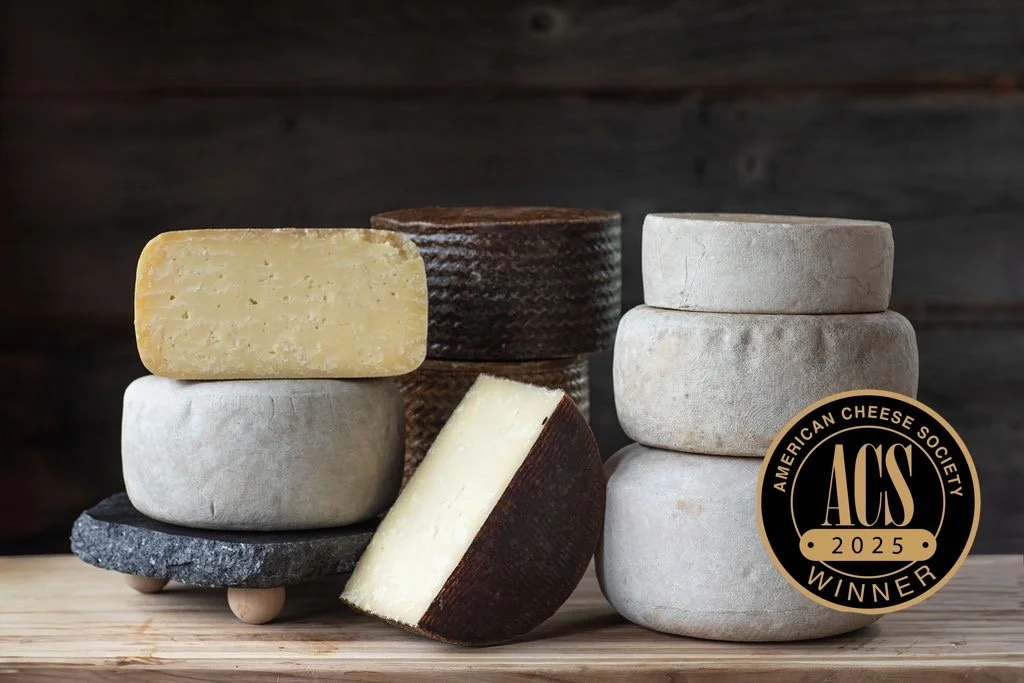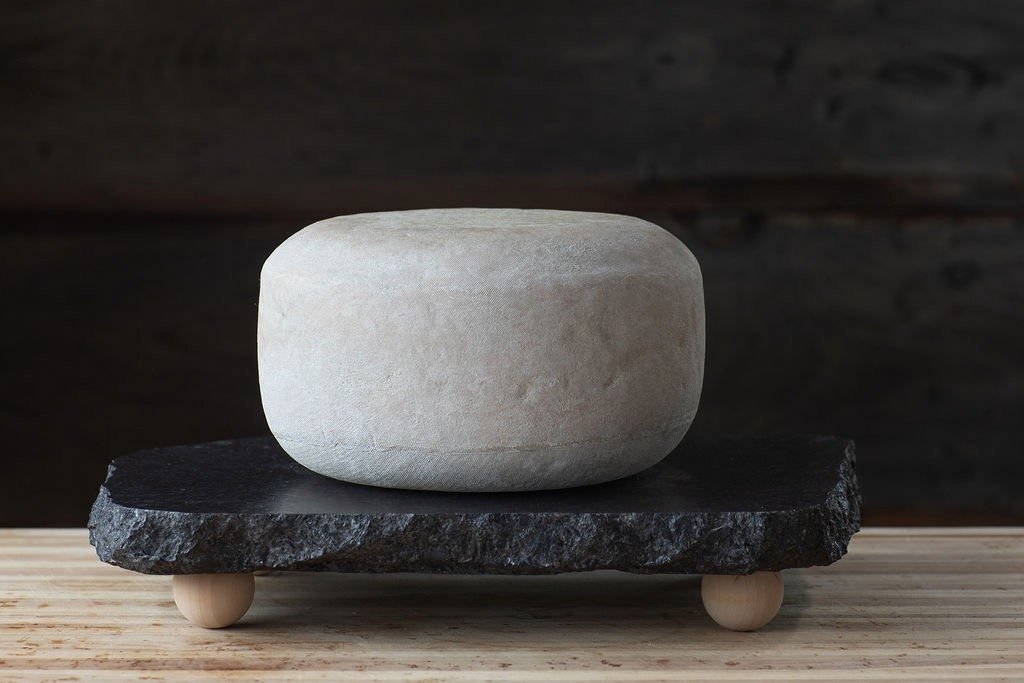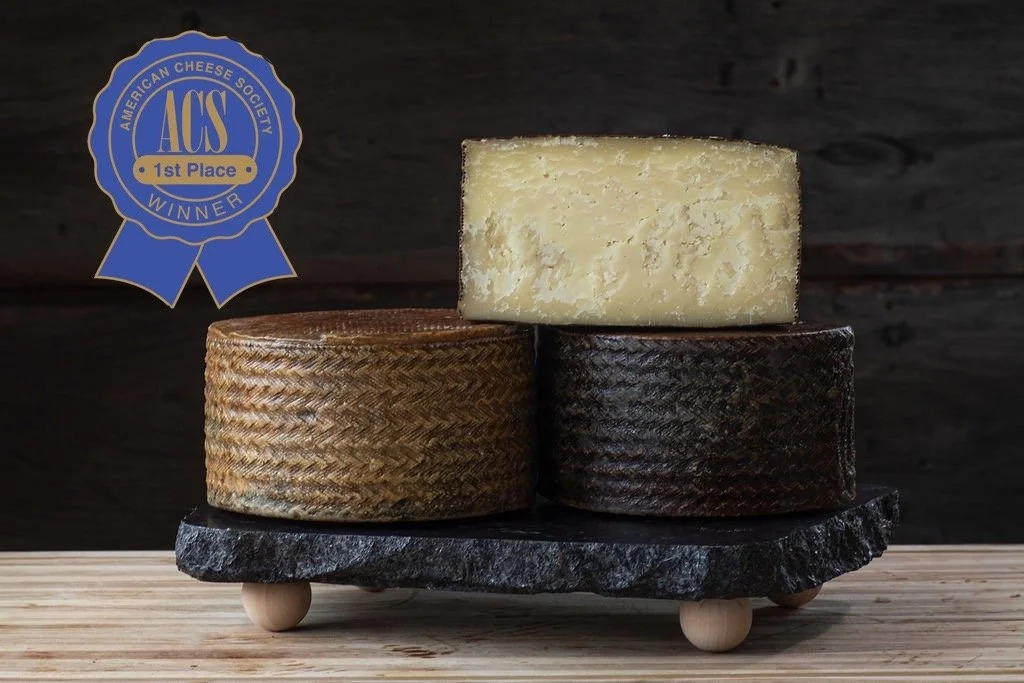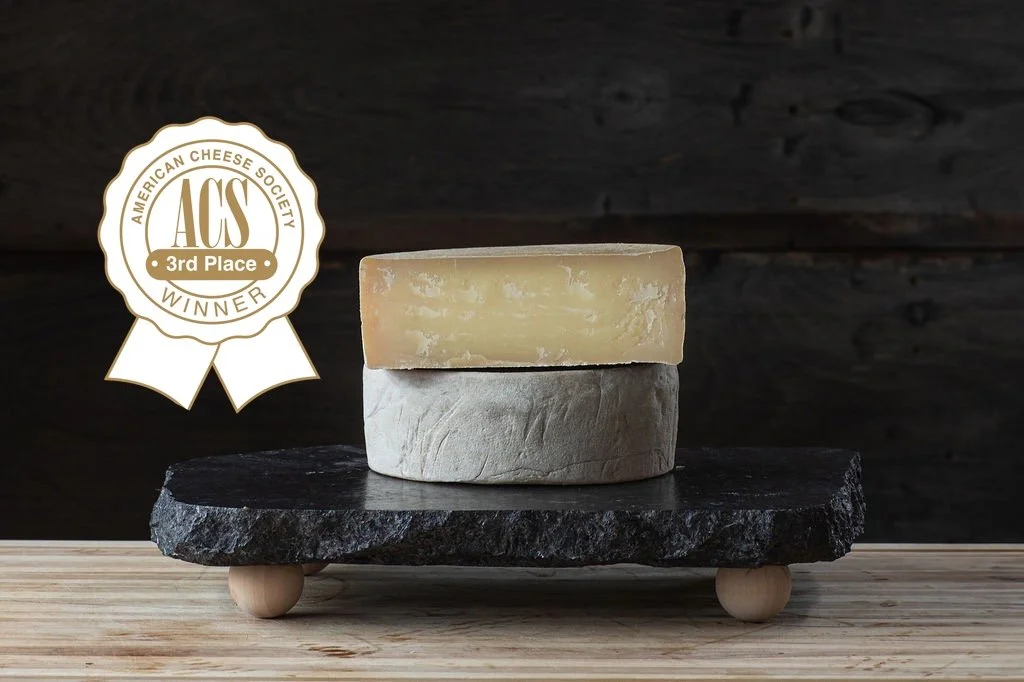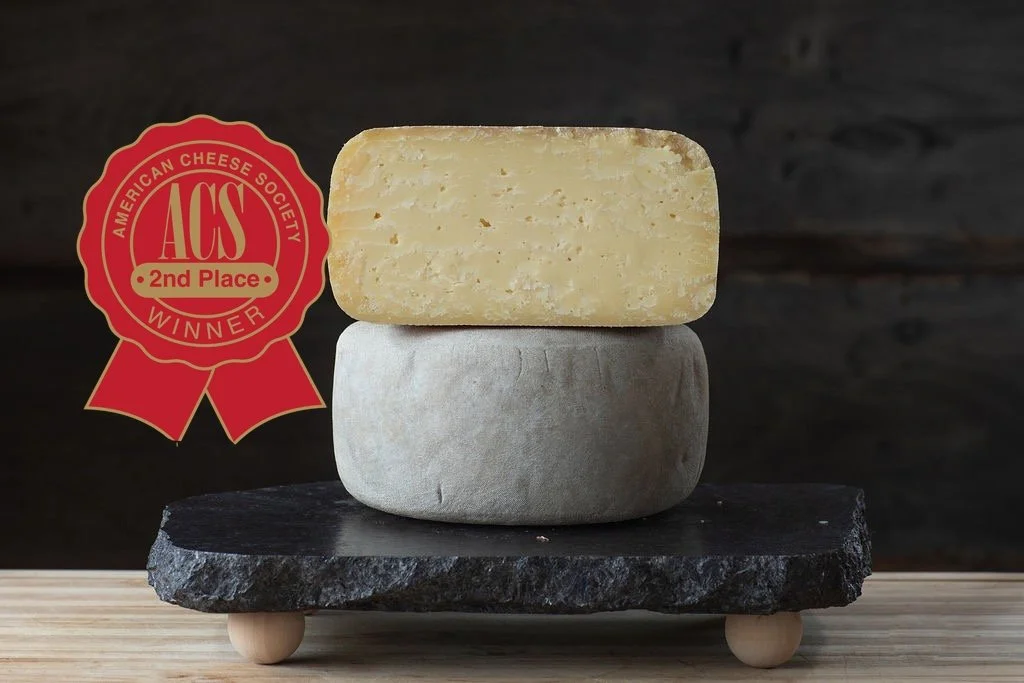The Milk
What makes an excellent cheese? The most important factor needed for making excellent cheese is the milk. We use the freshest milk possible when making our cheeses. The health of the animal and their diet also affects the quality of the milk. During the summer months, our sheep are out on pasture all day long. We practice rotational grazing, which means that the sheep are never on the same pasture for very long. To meet the needs of our ewes, we also supplement their diet with local hay and organic Vermont grain.
The type of milk used also affects the taste and quality of the cheese. Compared to cow’s milk, sheep’s milk has double the amount of fat and protein. For this reason, sheep’s milk cheeses are incredibly rich and creamy. The fat globules in sheep’s milk are much smaller than in cow and goat milk. This makes sheep’s milk more homogenous than the other milks. The smaller fat globules make sheep’s milk easier to digest. The casein protein found in sheep’s milk is more easily digestible than the milk from holstein cows. It also tends to be easier on the belly for people who are lactose intolerant.
Our Cheeses
Sheep’s milk can be made into any type of cheese. It hasn’t been easy trying to decide which cheeses to direct our focus. We wanted to make some of our favorite cheeses, but we have so many. It was very difficult to choose just a few.
Aged cheeses develop flavor as the lactose converts to lactic acid during the aging process. For this reason, aged cheeses have a stronger, richer flavor than fresh cheeses. It is also the reason we are in love with so many aged cheeses.
G-Ewe-Da
Gouda cheese is traditionally a cow’s milk cheese. Our G-Ewe-Da is our Gouda style cheese but instead of cow’s milk it is made with 100% raw sheep’s milk cheese. G-Ewe-Da is aged for a minimum of 6 months. It is a semi-hard cheese with a rich, nutty flavor.
Manchiko
Manchiko is our Manchego style cheese. Our very first ram was named Manchego (he was quite the stud), and our daughter, although she could pronounce the name “Manchego”, always called him “Manchiko”. Our Manchiko is aged between 6-12 months. It is a semi-firm to firm cheese. The flavor is caramel and nutty with the flavors sharpening with age.
Ewe-Licious
Our Ewe-licious is a raw sheep’s milk cheese, aged for about 3-4 months. It is one of our younger, and therefore more mild flavored cheeses. It is a semi-firm cheese, with a creamy texture and a nutty, rustic flavor.
Meadow’s Magic
Meadow’s Magic, magically brings you back to a time when cheese was made from the day’s milk, and the culture used to make the day’s cheese was made naturally from fermenting their own milk. Aged for 4-6 months, it is smooth in texture with a rich, unique flavor.
Autumn’s Blend
Toward’s the end of our milking season, in late summer and early fall, our sheep’s milk is it’s richest but sadly there is less of it. So that we can still make cheese in the early fall, we blend our sheep’s milk with the Jersey cow milk from Cobb Hill, just down the road. Aged for a minimum of 6 months, it is a robust cheese, with overtones of salt and an unmistakably raw flavor.
Our Cheese Cave
All of our cheeses are aged in our cheese cave located under the event barn. Our cheese cave provides a cool, moist environment for our cheeses to ripen and develop their best flavor. All of our cheeses are ripened on wood boards harvested from the land on Fat Sheep Farm.

